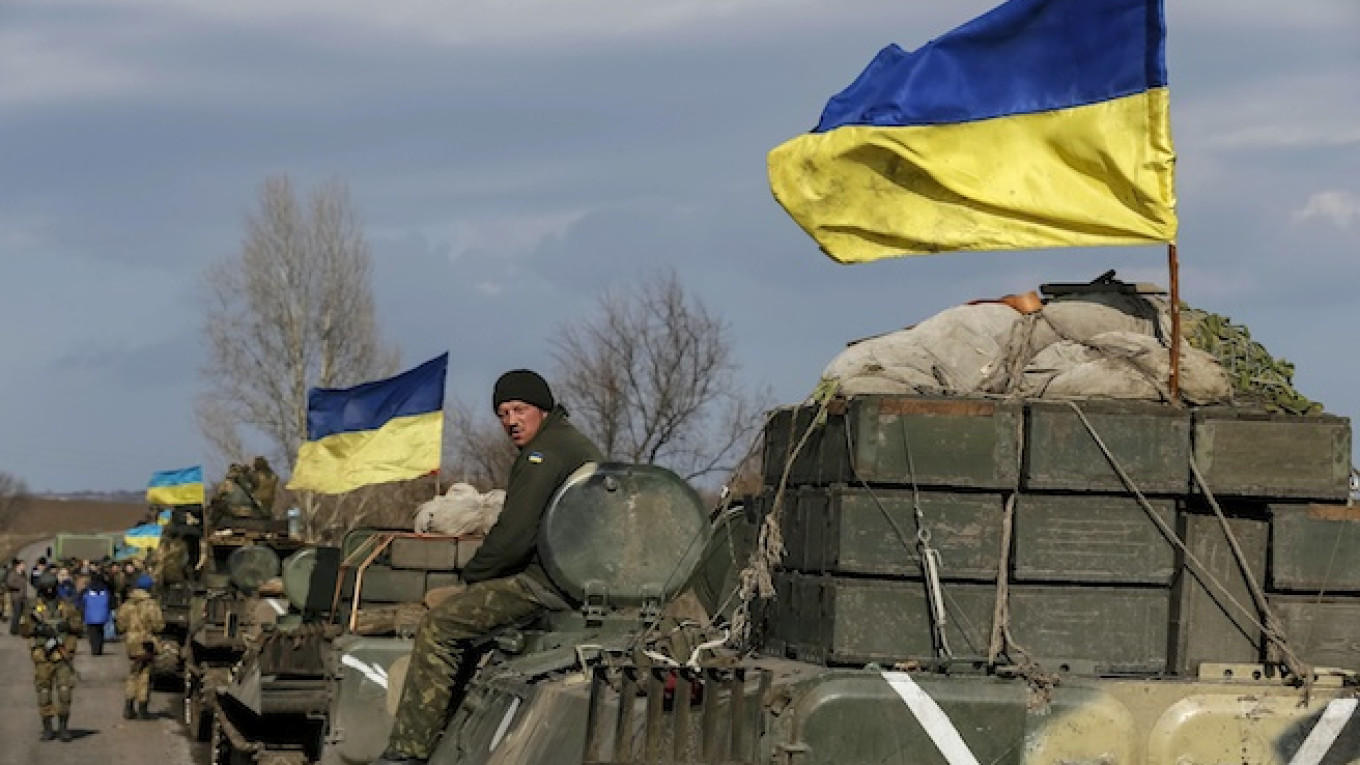KIEV — Ukraine's parliament has voted to offer limited self-rule to pro-Russian rebels in the east to try to preserve Western support for peace efforts, despite some deputies saying it would give separatists more scope to tighten their grip on the region.
The law granting "special status" to "people's republics" proclaimed by the separatists was a follow-up to a peace agreement worked out in Belarus last month.
Western governments say the Minsk agreement is still the best opportunity for a lasting settlement to a conflict in which more than 6,000 people have been killed.
But Kiev's insistence on Tuesday that the law should come into force only when elections are held in the eastern territories under Ukrainian jurisdiction drew immediate criticism from Russia, whose forces Kiev says are arming and backing the rebels.
Russian Foreign Minister Sergei Lavrov, speaking in Moscow, said the law was a "sharp departure from the Minsk agreements" because it tied "special status" to elections in which the self-declared rebel leaders would not take part.
Separatist leaders also criticized the law. "All the questions which the Kiev parliament considered today completely contradict the Minsk agreements," a separatist official, Alexei Karyakin, was quoted as saying by the Russian news agency RIA Novosti. He said Kiev planned "new bloodshed."
The pro-Western leadership bulldozed the law through parliament to show its good faith to the West — whose financial and political backing it needs to prevent Ukraine breaking up — even at the risk of shaking the consensus in the assembly.
"We are adopting these laws not for [Russian President Vladimir] Putin or the occupiers. The position of Europe towards Ukraine will be defined in terms of its readiness to fulfill the Minsk agreements," Andriy Parubiy, parliament's vice-speaker and an ally of President Petro Poroshenko, told journalists.
But other pro-Western factions, including that of former prime minister Yulia Tymoshenko, spoke out against the law. "This law is a vote for de-facto recognition of the Russian occupation in Donbass," said Oleg Lyashko of the Radical Party, using a common term for describing the industrial east.
Fragile Cease-Fire
The parliamentary session took place as a cease-fire, agreed at the Minsk summit of Ukrainian, Russian, German and French leaders last month, continued to hold — though tenuously.
The Kiev military said three Ukrainian soldiers were killed in the 24 hours to Tuesday morning in clashes with rebels it accused of continuing to violate the agreement, though there has been relatively little loss of life this month.
The law was intended to build on the relative success of the cease-fire and other parts of the agreement, including the withdrawal by Ukrainian forces and separatists of heavy military equipment to put their big guns out of range of each other.
It will grant limited self-rule to separatist-minded regions for a three-year period and allow them to "strengthen and deepen" relations with neighboring Russian regions. It will allow heavily armed rebels to set up their own police forces.
But Ukraine's insistence that elections in the eastern territories be held under Ukrainian auspices appear likely to be a stumbling block. The law stipulates that the elections can be held anyway only once Russian forces and fighters have been withdrawn from Ukrainian territory.
To balance the law, deputies hustled through a parliamentary statement that the eastern territories remained "under occupation" and would one day have to be liberated.
Parliament also approved an appeal by Poroshenko to the UN Security Council to support the sending of a peacekeeping force to the east.
Apart from hopes by many in the Ukrainian establishment that supplies of Western arms may be in the offing, the Poroshenko leadership has to fall in line with Western wishes for a peaceful solution to the crisis if it is to be able to draw over the next four years on a $40 billion aid package from the West.


